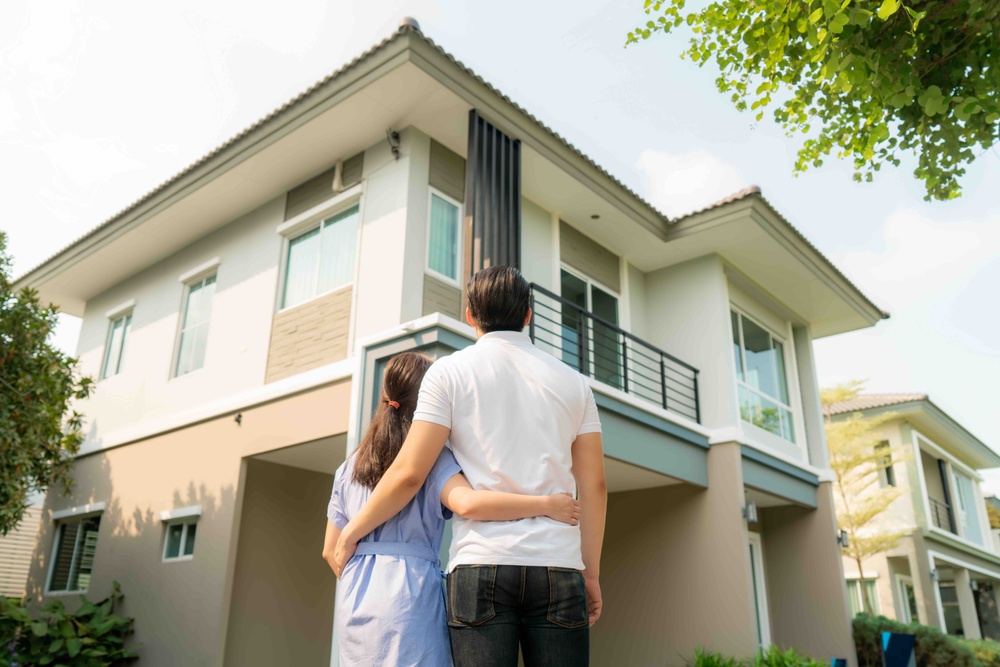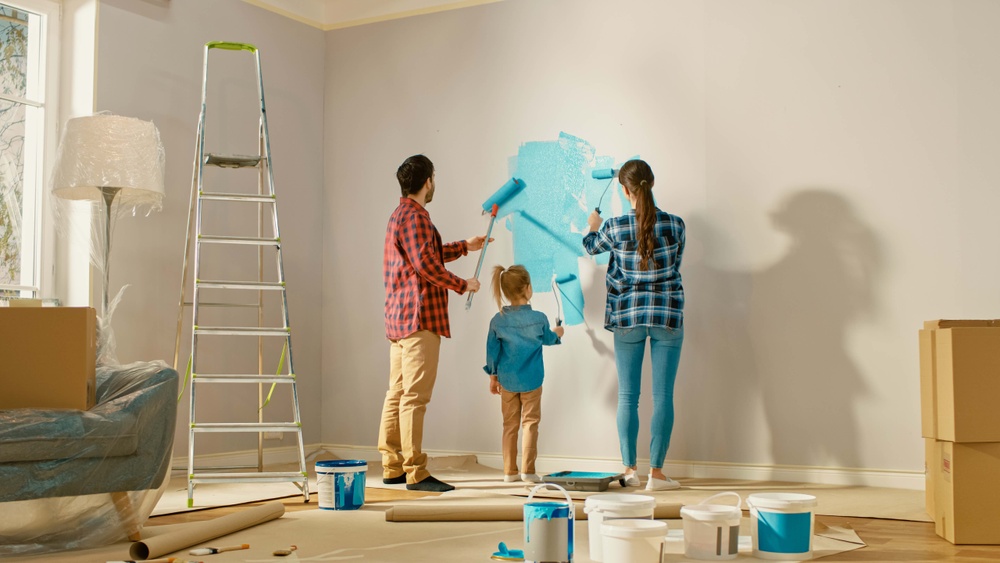Buying your first home is a major milestone in life, so naturally this can be a simultaneously exciting and overwhelming experience. But it is important to keep your excitement level and stay pragmatic throughout the homebuying process. Afterall, the last thing you want is to find yourself in a financial rut where you’re struggling to make mortgage repayments, pay utility bills, or fund renovations.
This is where good budgeting practices, skills and knowledge can really come into play. Budgeting is a vital tool that can help you determine what you can afford, plan for expenses, and avoid getting in over your head, particularly if you’re planing to make major changes to the home design.
Not sure where to start? We’ve got you covered. Today, we discuss 6 things every first home buyer needs to know when budgeting for your new home purchase, so read on to find out more.
1. Work Out What You Can Afford To Borrow
When budgeting for your first home, understanding home loan rates and how they impact your borrowing power is always step one. Of course, everyone’s situation is different and how much you can afford to borrow depends on a variety of additional factors including your monthly salary, savings, credit score and if you’re maintaining any other financial commitments, like car loans or even student loans.
For first home buyers, you should ideally aim to purchase a home that you can comfortably afford to avoid stretching your budget too thin. To ensure that you are on the right track, consider speaking to a mortgage broker at the very beginning of your home-buying journey to seek loan pre-approval, explore lender offers that may pique your interest, and most importantly, to determine what your borrowing capacity is likely to be. These professionals will also be able to provide you with more insights into current interest rates, and the various types of home loans that are on offer to you, which we will be touching on further in our next point!
2. Fixed Rate vs. Variable Rate Home Loans
Now that you’ve figured out exactly how much you can afford to borrow for your first home, it’s time to think about the type of home loan that is most suitable to your needs and lifestyle. Generally, there are two types of home loans in Australia — fixed rate home loans and variable rate home loans, as well as a third option known as a split home loan which is a combination of the two.
A fixed home loan is a type of mortgage where the interest rate and loan repayment amount remains the same for a fixed period, typically 1 to 10 years. This means that regardless of changes in the market interest rates, your interest rate and repayments will remain the same during the fixed term.
On the other hand, a variable home loan is a type of mortgage where the interest rate can fluctuate up or down during the loan term, based on changes in the market interest rates. This means that your repayments can also go up or down in response to changes in interest rates.
Both types of loans come with their own sets of pros and cons, and the ideal choice will differ for everyone, depending on your personal financial situation, goals, and risk tolerance. Learn more about choosing the best home loan here.

3. Factor In All Of The Costs
One of the biggest mistakes that first home buyers make time and time again is failing to factor in all of the costs associated with purchasing a new home. Although it can be easy to get lost in the excitement of owning your first property, it is vital that you consider all of the hidden costs of home ownership, and not just the purchase price. Conveyancing fees, stamp duty, property taxes, body corporate fees and homeowner's insurance are just a few of the expenses you will need to factor into your budget to have a clearer idea of how much you can expect to be spending. Do note that if you are purchasing an established property, there may also be additional costs associated with repairs and maintenance fees, so be sure to budget with that in mind.
4. Think About Your Deposit
Another important thing to consider when budgeting for your first home purchase is your initial deposit. Generally, the typical deposit is 20% of the purchase price, although it’s possible to buy a home with a deposit as low as 5%. So, why exactly is your deposit so important? This is because investing a larger deposit allows you to take out a smaller loan with smaller repayments, and you’ll generally get a better interest rate with more savings in the long run.
Moreover, if your deposit is less than 20%, you may have to fork out extra costs for Lender’s Mortgage Insurance (or ‘LMI’). These are all important things to consider when deciding on how much you are looking to deposit, as it can have a significant impact on your homebuyer’s budget. In some cases, it can be more economical to pay LMI, while in others, it may not. A little bit of research goes a long way here, so be sure to do your due diligence before making any commitments.
Note: To assist first-time buyers, the Australian government has introduced various schemes such as the First Home Loan Deposit Scheme (FHLDS) and the First Home Owner Grant (FHOG). Learn more about how you can benefit from these schemes here.

5. Be Prepared To Negotiate
If there is one rule we live by, it is that first home buyers should always be prepared to negotiate. Negotiating the price of your home can save you a significant amount of money and generally, your real estate agent should be able to determine an appropriate offer and negotiate with the seller on your behalf. At the end of the day, saving even a few thousand dollars on the purchase price of your first home can make a big difference in your budget and long-term financial stability. It can help you make smaller mortgage payments each month, pay off your mortgage more quickly, or use the money for other expenses, such as repairs or renovations.
Note: If you do not wish to negotiate yourself or don’t feel comfortable doing so, you could also consider engaging a buyer’s agent, who may be able to represent you in negotiations.
6. Start Saving Now
Last but not least, we can’t talk about budgeting for your first home purchase without mentioning saving at least once. Saving a property deposit (or for your repayments) has never been easy and requires a fair amount of discipline and sacrifice on your part. If you start saving early, you have a better chance of putting down a larger down payment, which can reduce your monthly mortgage payments and provide you with a financial cushion in case of unexpected expenses.
You can always start by making small changes to your spending habits such as cutting down on the amount of money you spend on takeaways, limiting your monthly subscriptions, or finding cheaper alternatives to your regular expenses. The beauty is that these simple steps can help you save consistently and without effort.
Additionally, if you have credit card debt or other high-interest loans, consider prioritising paying those off first. Reducing your debt will help you save more in the long run and make you more attractive to lenders. Saving for a down payment can take time, so be patient and stick to your plan. Remember, every dollar saved is one step closer to achieving your goal.
______________
And there you have it — everything you need to know when budgeting for your first home. The truth is that budgeting for your first home can be a daunting task, but with proper planning and research, it can be a manageable process. We hope that these handy tips have enlightened you with a few new ideas on how you can budget the smart way as a first time home buyer. All the best, and congratulations on your new home in advance!
Publisher Website: https://www.qantasmoney.com/